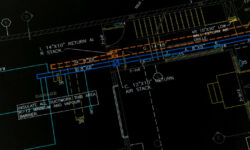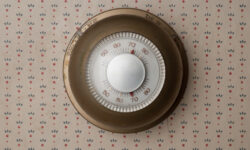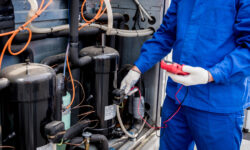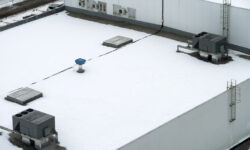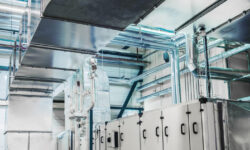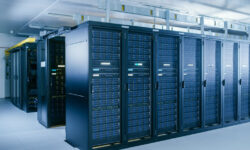Hospitals are high-sensitivity spaces that require a delicate balance of factors to maintain the health and comfort of patients. Because hospitals are such high-traffic areas, the most important thing is making sure that every room stays as clean as possible. Hospital HVAC systems are integral to preserving this balance. Every room is connected via the building’s HVAC system. That means every patient potentially shares the same air. Without specifically designed hospital HVAC systems, this would present a massive challenge. How do you keep the air clean for every patient when they all share the same air? The answer comes down to competent system design.
Read more →Commercial HVAC systems account for as much as 39% of energy use in commercial buildings throughout the country. That number, 39%, represents an opportunity to save money while maintaining comfort and operational efficiency. By designing a commercial HVAC system correctly from the start, you will have the best chance at saving on operational costs without taking shortcuts.
Read more →Heating, ventilation, and air conditioning (HVAC) systems are so commonly used in American commercial buildings, schools, data centers, homes, and other places that you probably don’t notice them unless the setting is too cold or the system breaks. You’ve probably never given much thought to the history of HVAC installations! Whether you notice HVAC systems or not, Americans spend vast sums on them. The Energy Information Administration reported in 2015 that 48 percent of energy consumption was related to heating and cooling costs! Though HVAC systems are everywhere, how much do you know about their history?
Read more →Air compressors play important roles in many commercial and industrial systems. There are two main types: oil-free air compressors and oil-flooded air compressors. Both see wide use in a variety of industries, but which is suitable for your application? Is an oil-free air compressor best in every situation?
Read more →As winter comes around, there will be numerous things to do to prepare your commercial building. Getting your HVAC systems ready is one of them, and going with the professionals can help you in more ways than you might think.
Read more →Air handling units (AHU) are used in medium- and large-sized industrial or commercial properties to condition and distribute fresh air throughout the building. An AHU is part of the larger HVAC system (heating, ventilating, and air conditioning). The device takes air from the outdoors, cleans and conditions it, and heats or cools it as needed. Read on to learn more.
Read more →It may come as no surprise to learn that the HVAC system is the largest source of energy use in your building. Wouldn’t it be great to decrease your utility costs without sacrificing the quality of your indoor air? A smart HVAC system may be the solution. Smart systems are more efficient and can reduce energy use up to 10-15%. With savings like that, you could recoup the cost of installing a smart unit in just a few years.
Read more →Data centers power the internet; they house the number of servers where the internet’s websites and information are stored. These structures help ensure the internet runs, and HVAC systems are crucial to keeping the data centers running. HVAC systems serve an essential function in data centers: they control the air, temperature, and humidity to run the computer servers that power the internet.
Read more →Where are the savings? That’s the theme of the building industry in this post-pandemic era. Many raw materials have increased in price, and construction budgets for commercial and residential high-rises are skyrocketing. This makes it more important than ever to know where the those savings are. These savings sometimes come from the least expected places. One of them is the 179D Energy Tax Deduction. This allows tax savings for measures that increase energy efficiency in buildings through the HVAC system. The 179D Energy Tax Deduction is also known as EPAct. It applies to commercial buildings, and multi-family residential buildings that are four stories or higher (above ground). Owners can expense up to $1.80 per square foot of the cost of improvements that increase energy efficiency.
Read more →According to the EPA, heating and cooling systems account for 40%-50% of the energy consumption in the typical hotel room. The type of HVAC system you choose for your hotel rooms will not only affect your energy bills but also contribute significantly to the comfort of your guests.
Read more →
